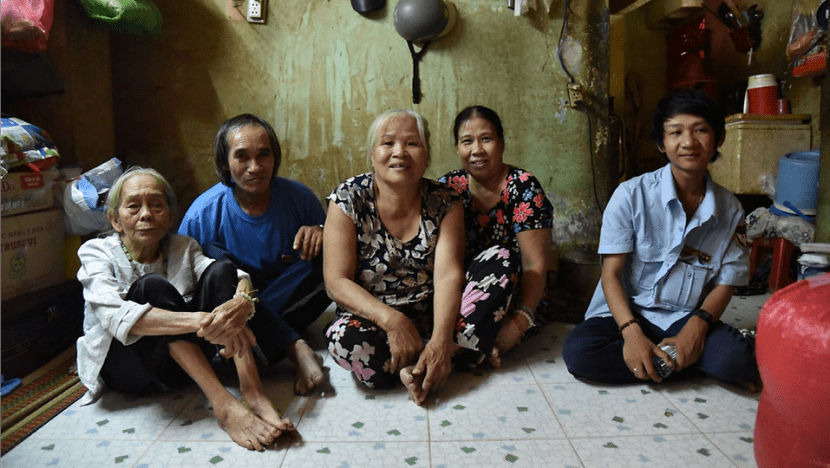Vietnam’s ticking time-bomb of elderly poverty
More are working into old age to survive, in the world’s most rapidly aging country. Will solutions be too little, too late for Vietnam’s growing ranks of elderly poor? Part 1 of a regional series on elderly poverty explores the issues.
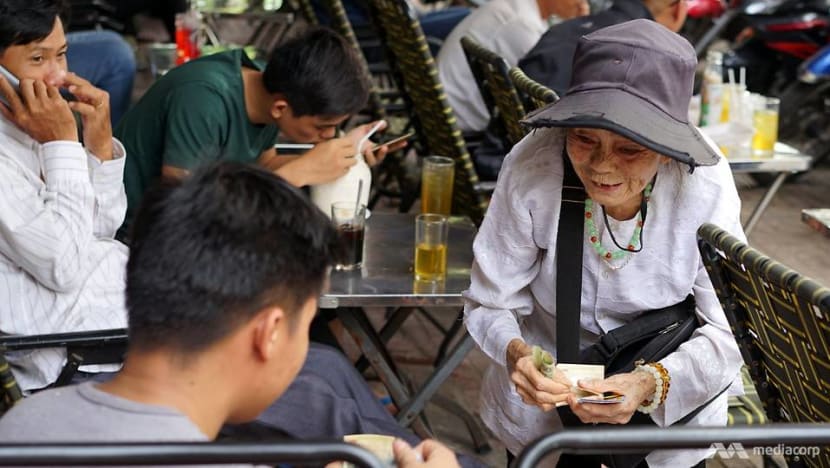
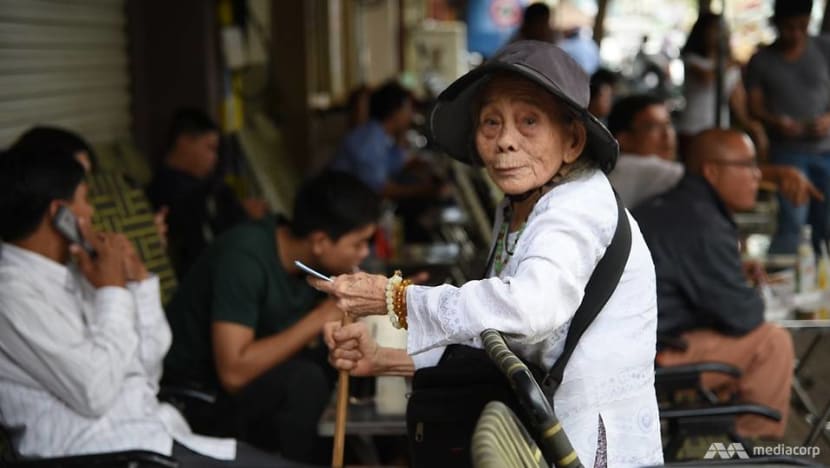
HO CHI MINH CITY: Having slogged in the tiny, dimly lit kitchen since 4am, the Chau sisters are finally done mixing, kneading, steaming and cooking, some seven hours later.
But, with the sun approaching its noon peak, their day is barely halfway through. Now comes the even more arduous task: Hawking their snacks – a menu of red bean soup, mung bean dumplings, banana cake and an iced peanut drink - in the blazing heat.
Despite her slight hunch, 70-year-old Madam Chau Chung Muoi moves just as nimbly as her younger sister Dao Muoi who is 61, and she propels the heavy-laden pushcart with surprising speed down the busy streets.
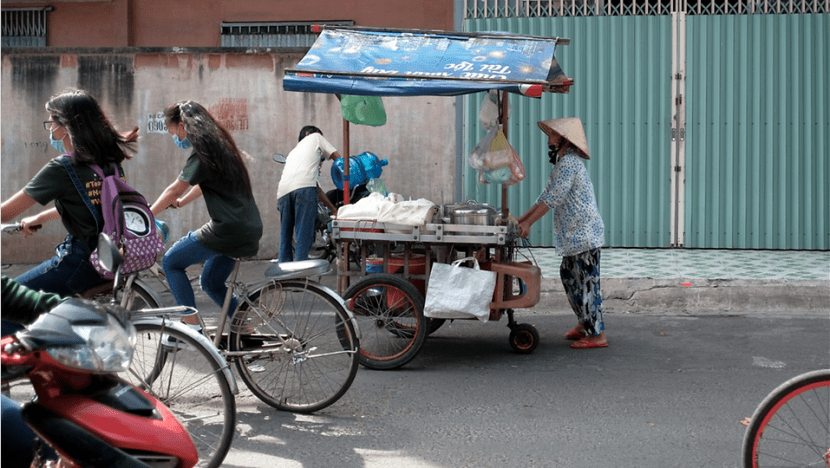
If they sell all their snacks by the end of the work day - which could be any time between 6pm and 9pm - they will take home 100,000 to 200,000 Vietnamese dong (S$6-12).
It is how they have eked out a living for decades – and will likely continue to, until the bitter end. “I think of retiring,” said Dao Muoi. “But if I don’t work, how will I have money to survive?”
MORE NEED TO WORK IN OLD AGE
While rapid economic growth since the 1990s has propelled Vietnam from among the world’s poorest countries to middle-income status, not everyone has shared in this growing wealth. The elderly poor, for instance.
According to United Nations figures, more Vietnamese than ever are now working into their sunset years. Around 40 per cent of those aged 70 to 74 are still employed in some way.
Roughly seven in 10 of the working seniors in Vietnam’s urban areas work in the informal sector – as market vendors, taxi drivers, waste collectors, scrap pickers, and street vendors like the Chau sisters. It is tough menial work for low returns.
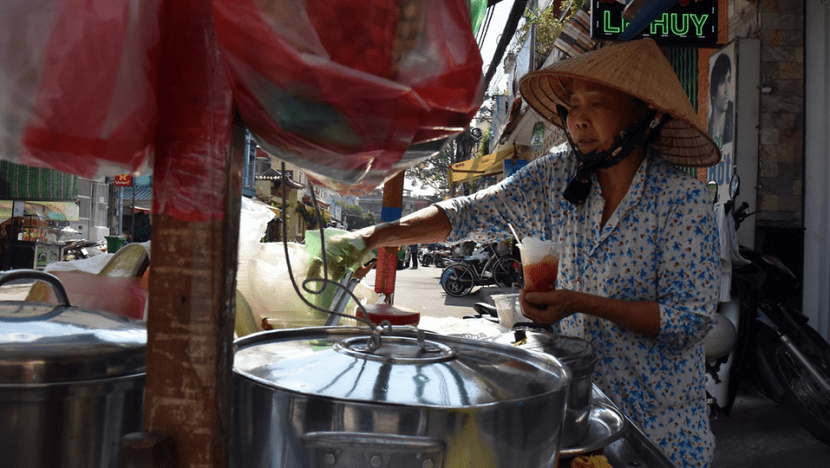
The low and unstable income of such jobs means, very often, a life stuck in poverty, with almost no chance to save up for old age. “When my legs hurt, I don’t work,” said Dao Muoi. “When we make some money, we put it away so that on those days when we can’t work, we still can eat.”
They may seem sprightly, but the sisters suffer from heart issues, high blood pressure and joint pain, among other things. They face their reality with the same fatalistic stoicism with which they supported their parents and two brothers – all of whom went blind – for years before their deaths.
It meant giving up the chance to marry and have children of their own. “When we are unwell, there’s no one to look after us now.”
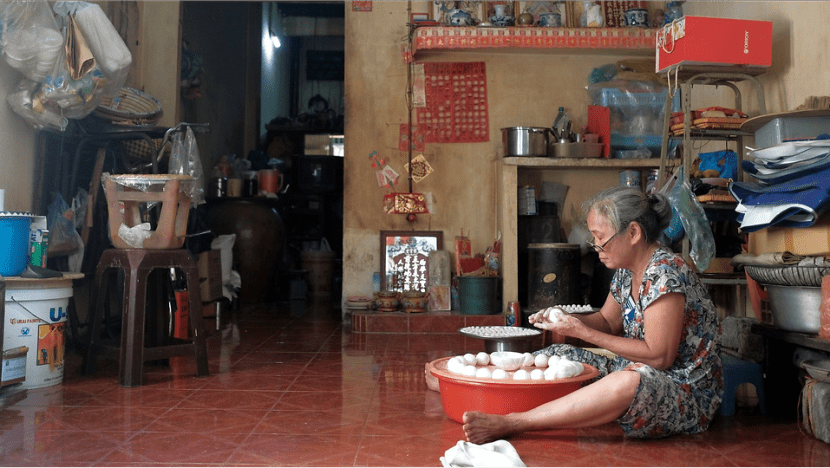
POPULATION TIME-BOMB
Vietnam’s population is still relatively young - just over 10 per cent are aged 60 years and older - but it is fast greying. In fact, according to World Bank calculations, it could now be the world’s most rapidly ageing country.
Come 2030, nearly one in five will join the ranks of old age. And by 2050, that figure may be 30 per cent, or nearly one in three of the population. Life expectancy, now 73, could hit 80.
"The speed of aging in Vietnam is among the fastest seen globally to date, and is happening at much lower income levels than currently old countries,” warned the World Bank in a 2016 report.
No wonder experts see growing urgency for greater attention to be paid to the problem of elderly poverty, in a country with just tenuous safety nets for the old.
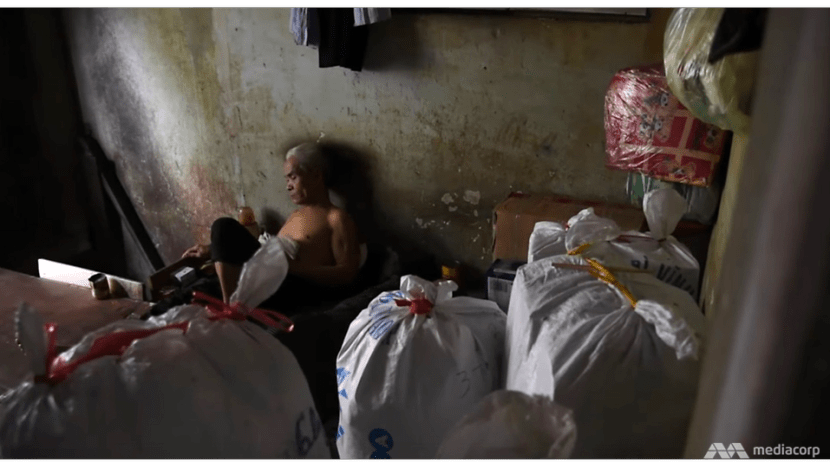
Officially, about 11 per cent of Vietnam’s population lives in poverty. In urban areas, the official poverty line is defined at 900,000 dong (S$56) in personal income.
But analysts suggest the real scope of poverty could be a lot worse, because many live just above this threshold. “If we raise the poverty line up by around 20 per cent (to 1,080,000 dong), then the poverty rate will double to 22 per cent,” said Ms Nguyen Ngoc Quynh, a social protection analyst with the United Nations Population Fund (UNFPA).
LIMITED STATE SUPPORT
There is some state support for the elderly poor.
The central government offers a social pension scheme that provides allowances to those elderly without a contributory pension. But analysts point out it is extremely restrictive, and only about one in five qualifies for it.
To be eligible, you need to be above 80 years of age (life expectancy for both genders, notably, falls short of that); or, if you are aged between 60 and 79, you need to be officially identified as poor.
The Chau sisters fall in the latter category, and so get a monthly allowance of US$14. But this is hardly sufficient to survive on.
“The benefit is quite small compared to the minimum living standard,” said Associate Professor Giang Thanh Long of the National Economics University, who advises the Vietnam government on its ageing policy.
WATCH: A day in the life of the Chau sisters (3:10)
SURVIVAL BY LOTTERY
Still, the Chau sisters are among the luckier ones. Aside from getting the small allowance from the government, they inherited their parents’ house and so do not have to worry about rent. And, as certified-poor residents of Ho Chi Minh City, they get free healthcare at government clinics and hospitals.
But across town, in another working class neighbourhood, 38 seniors are crammed into a house smaller than the Chau residence.
It is so crowded that the elderly folks, some of whom are disabled, take turns to sleep on the upper floor which is barely the size of a one-room HDB flat.
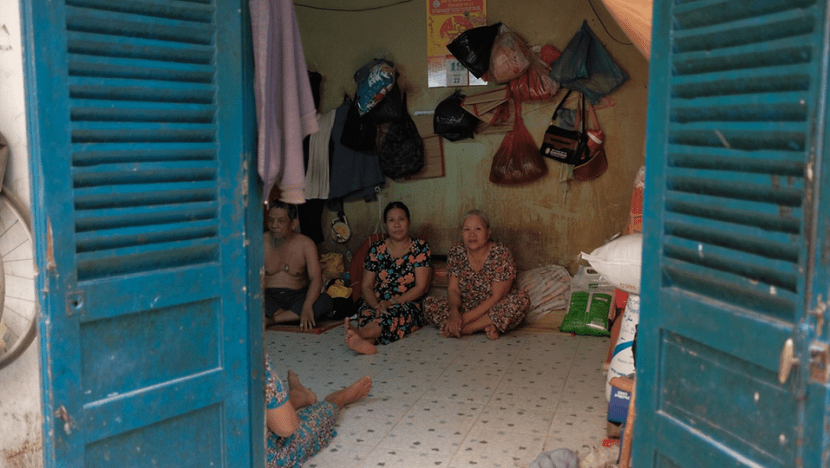
All hailing from Phu Yen, a coastal province 600 km away, they are among thousands of migrants from the rural areas where poverty is much higher and jobs are scarce – especially for older folks who can no longer work in the fields or out at sea.
“Our children live a hard life themselves farming, fishing. They don’t earn enough to raise their own kids; they can’t afford to support us,” says Ngo Van Tieng, who is blind in one eye.
And so, like dozens of other older folks in Phu Yen, he left his wife and four children behind to work in Ho Chi Minh city.
WATCH: How this collective of old folks help each other (5:59)
They form a self-organised collective. Each evening, Tieng and other members of this ragtag household spread out to sell lottery tickets on the streets. They help each other – some who are blind or too frail rely on a partner to move about.
Each ticket earns a commission of 1,000 dong. At the end of the night, they pool their earnings and share the profits equally. After deducting for food and rental expenses, everyone should be able to save up to 1.5 million dong per quarter, said Tieng.
But savings can be wiped out by thieves, illness or accidents.
Last May, while he was ferrying a fellow 82-year-old lottery ticket seller, she fell off his motorbike and needed hospital treatment that amounted to 1.3 million dong. Not registered residents of Ho Chi Minh City, they don’t even have access to subsidised healthcare.
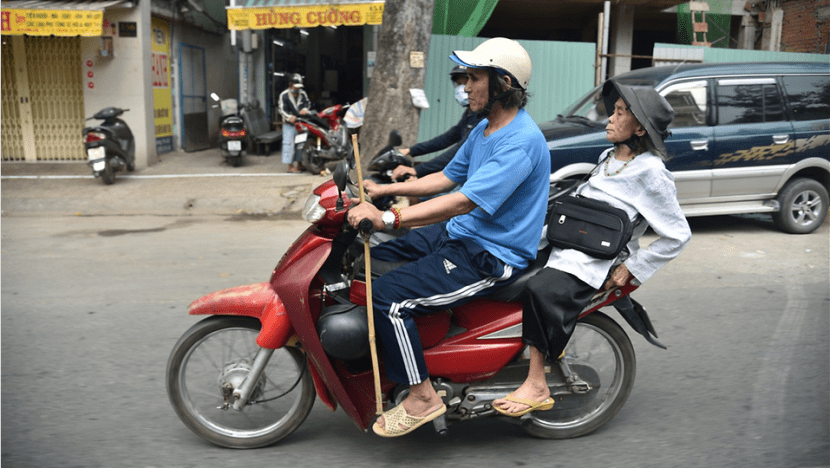
WHEN FAMILY’S NOT ENOUGH
In Vietnam, as has been the case in other modernising countries, the family model of support is not what it used to traditionally be.
According to surveys, more elderly Vietnamese are living alone. In urban areas, more than 11 per cent of those aged 80 and above live by themselves (many are women who outlived their husbands).
And with declining birth rates, as the current young generation ages, there may be less support available for ageing parents.
A “new concern”, said UNFPA’s Ms Nguyen Ngoc Quynh, “is that young people do not want to live in multi-generational households anymore”. “They consider old people to be a burden. I think they (the old people) also see themselves as a burden,” she added.
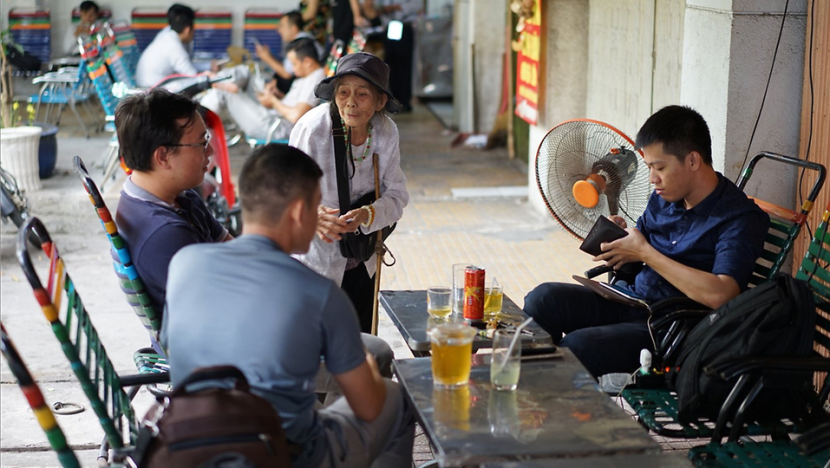
She cited the example of a family in her neighbourhood. “They were quarrelling all the time about who’s taking care of their parents. So the old man in that house, two years ago, he left home. They still haven’t found him. He was about 73.”
What all this means, experts note, is that better social safety nets for the elderly will be increasingly important as the population ages inexorably. But what can be done?
REALLOCATE FROM ‘BETTER-OFF OLD’ TO ‘POOR OLD’?
The problem comes back to the fact that more than half of Vietnamese work in the informal sector.
In Vietnam, those working for the public sector and corporations enjoy pension payouts after they retire, under the social insurance scheme (it is similar to Singapore’s Central Provident Fund in that both employer and employee contribute to it). But they account for only about 29 per cent of seniors, who are among the better off.
The government has tried to encourage workers in the informal sector to contribute voluntarily to the pension fund – but it has had little success so far, due in part to the high contribution rate required of workers.
As for improving the social protection system so that more are covered (and better covered) with an allowance for old age, Assoc Prof Giang acknowledged the constraints of a limited government budget. “So we need to extend coverage gradually, and increase the benefit level gradually.”
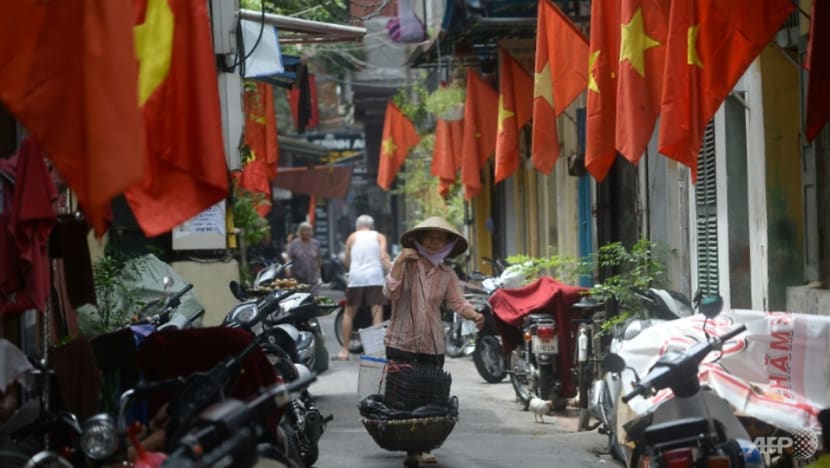
Experts note with concern that the government’s growing mountain of public debt would make it tough to increase social funding, even as needs grow.
But Ms Quynh doesn’t think that the lack of budget resources is the issue.
Citing a study which asserts that just 0.03 per cent of Vietnam’s GDP would be needed to achieve universal social insurance coverage for the elderly, she pointed out: “The better-off older population, they receive almost 3 per cent of the GDP (via government subsidies on their pension payouts) … The government should reallocate the budget to social protection of the elderly poor.”
For the Chau sisters, though, any improvements may come too late. “Life’s bitter. I’m not happy. But this is my life,” said Dao Muoi, a Buddhist. Likewise resigned, Tieng said: “We are already at the bottom of the society. Nothing can be worse.”
This is part of a CNA Insider series exploring the issues of elderly poverty in Vietnam, South Korea, Singapore and Myanmar.
Read more:
